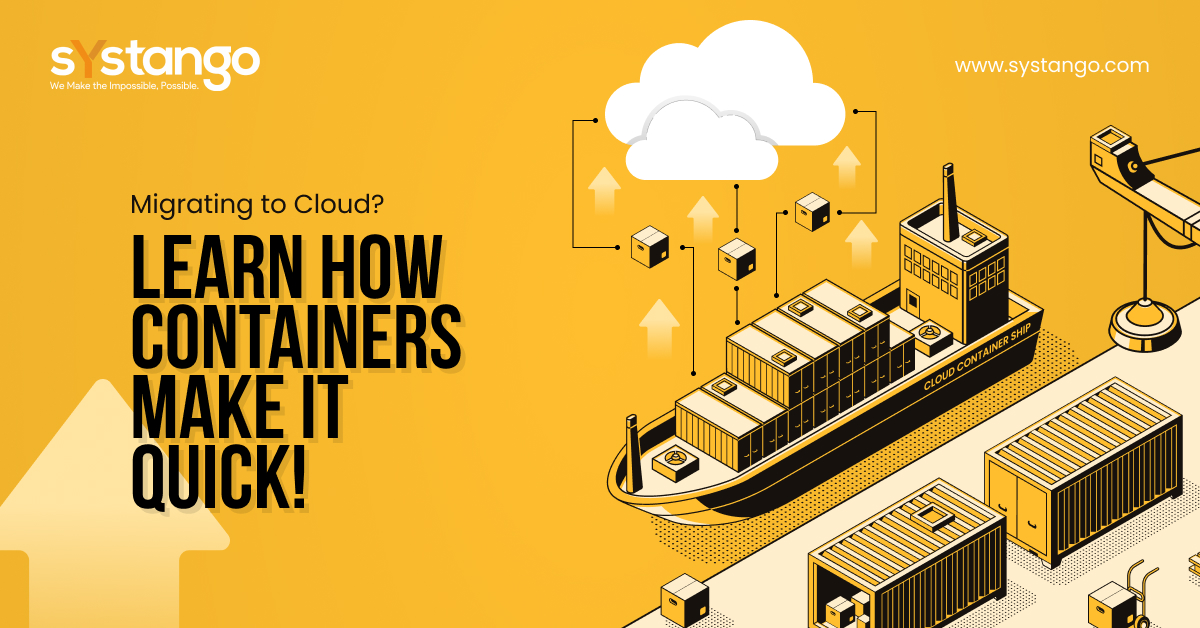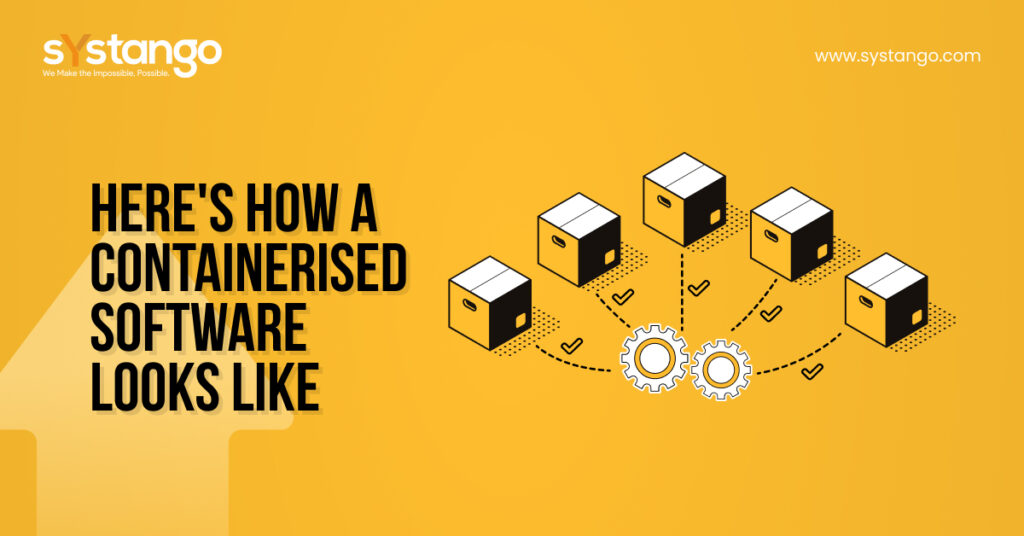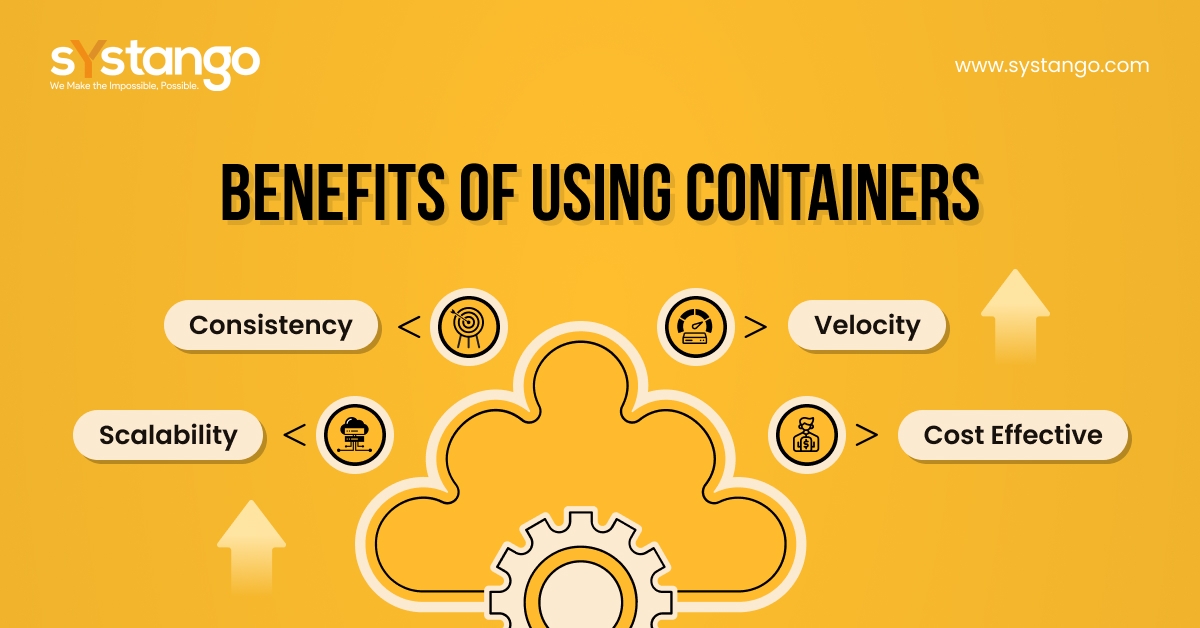Migrating To Cloud? Learn How Containers Make It Quick!
Published on 18 Oct 2022

Migrating To Cloud? Learn How Containers Make It Quick!
Gartner predicts that 75% of global enterprises will run more than two applications in containers by 2023.
Cloud technology is another revolutionary technology that modern-age businesses/developers are adopting quickly. With all the cloud capabilities, it not just modernizes the workload handling but also makes it easier and quicker to perform well in the new environment.
This blog piece is all about how cloud technology is able to deliver agility to cloud engineers with the help of containers.
What Exactly Is Container Technology?
Containers are packages, containing all the necessary elements to run an application in any environment. They are used to improve portability; ensuring the software operates reliably when it’s moved from one computing environment to another. From a public cloud to a private data center or even on a developer’s personal desktop, containers can be called or run anywhere.
How Containers Improve Portability?
A container holds the following in one lightweight bundle:
-the application
-configuration, and
-the OS dependencies.
So, container technology helps you in keeping an application and all the elements required to run it in a single place. With this, you can run applications in containers in the same way in any computing environment no matter where it’s hosted.
You must note, just like any shipping container, these cloud containers can be easily moved from one computing environment to another, regardless of what’s in them.
Holding everything in one place is how containers successfully overcome the issue of code portability. Additionally, it also streamlines the cloud adoption and migration process while unlocking valuable cloud capabilities.
If you’re planning to take the most advantage of using containers, any expert cloud solution providers will advise you to use them in conjunction with orchestration services.

What are Orchestration Services?
Cloud orchestration can be understood as the execution of functional and operational processes needed to design, create and deliver an end-to-end service. Initially, these processes were handled with siloed operational support systems for static environments.
Container orchestration automates its networking, scheduling, development, scaling, health monitoring, and even management of the containers.
Note: Major public cloud service providers offer their own container service compatibility with the notable container software Docker. Kubernetes is also used by some specialist orchestration systems.
Benefits Of Using Containers

Delivers Better Efficiency
Any or every cloud service engineer can effectively use the resources where they deliver better value, such as scaling the application when needed. This is because containers are easier and faster to spin up than VMs. Containers emerge as the ideal solution to deal with situations where you need to scale out quickly and deal with spikes in demand.
Consistency In Operations
Having all the elements (code and configurations) in one place frees up every cloud engineer from a lot of hustle. With containers, they can address deployment consistently in any environment. Such consistency between computing environments avoids the need for troubleshooting, which in turn helps increase the velocity of deployment.
Seamless Migration To Cloud
When planning to migrate to the cloud from any older application, containers are a perfect alternative to a complete rebuild. Containerising any legacy applications bring in improved operability in the cloud and takes less time than rearchitecting the whole structure or operations of application.
Bring Cost Effectiveness
When you use a container instead of a virtual machine (VM), you are basically avoiding using a dedicated operating system (OS). Instead, you’re leveraging the resources and functionalities from a central OS. This process makes each containers lightweight than virtual machines (VMs); reducing the overall costs to an extent.
Bottom Line
Containers are a quicker & easier way to unlock cloud benefits. They make cloud migration both effective and fast. What more does any cloud service engineer need apart from the functionality to modernize applications and leverage cloud benefits without having to build an application from scratch?
All in all, containers have registered themselves as a vital part of cloud adoption, migration, and even in ongoing software deployment. Connect with us to discuss your cloud requirements.
Related posts
Artificial Intelligence
Generative AI
AI/ML
Cloud
How Gen AI and Cloud Security Can Help Business Leaders: Strategies, Steps and More
16 Jan 2025
Let’s talk, no strings attached.